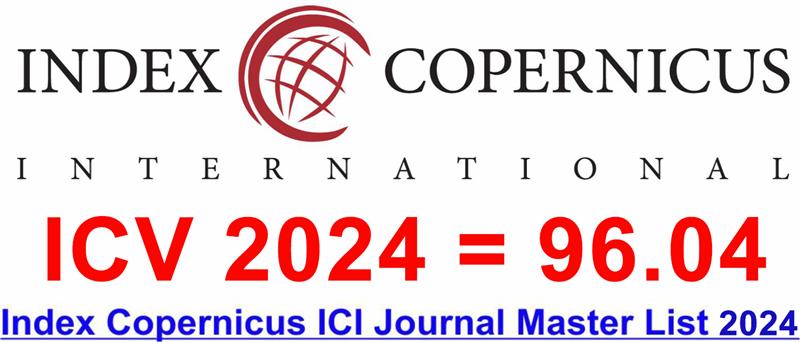The Impact of Overseas Learning Experience on EFL Teachers’ Performance in Oral English Course
DOI:
https://doi.org/10.60072/ijeissah.2024.v2i03.007Abstract
This study explores the impact of overseas learning experience on oral English teaching in China, focusing on the cognitive learning theory's application. Despite varying oral English teaching abilities among teachers, the research investigates whether overseas experiences enhance teaching effectiveness. The cognitive-code approach, emphasizing meaningful practice over rote memorization, is central to this study. This approach encourages learners to actively use language for self-expression and meaning making rather than merely focusing on grammar and vocabulary. The research, conducted in application-type universities in Henan province, involves 20 oral English teachers and includes a self-administered questionnaire for students. This questionnaire collects demographic data, evaluates teaching performance, and gauges reactions to teaching approaches. Observations of teaching practices also contribute to the data. The study aims to compare teaching performances of teachers with and without overseas experience and to assess the effectiveness of the cognitive approach in these settings. Results suggest that teachers with overseas experience generally perform better, effectively implementing the cognitive approach. Data analysis, performed using SPSS, includes frequency, mean, and crosstab analyses to evaluate teaching performance and the relationship between students' English levels and their evaluations of their teachers. The study concludes that overseas learning experience positively impacts the ability to teach oral English using cognitive methods, promoting better self-expression and practical language use among learners.
Keywords:
Cognitive Approach, English-Speaking, Oral English Teaching, Overseas Learning ExperienceReferences
Bolton, K., & Graddol, D. (2012). English in China today: The current popularity of English in China is unprecedented and has been fuelled by the recent political and social development of Chinese society. English Today, 28(3), 3-9. https://doi.org/10.1017/S0266078410000118
Beri, G. C., Kaushik, A., & Rahman, Z. (2020). Marketing research (6th ed.). McGraw Hill.
Borg, S., & Al-Busaidi, S. (2012). Teachers’ beliefs and practices regarding learner autonomy. ELT journal, 66(3), 283-292. https://doi.org/10.1093/elt/ccr065
Borg, S., & Alshumaimeri, Y. (2012). University teacher educators’ research engagement: Perspectives from Saudi Arabia. Teaching and Teacher Education, 28(3), 347-356. https://doi.org/10.1016/j.tate.2011.10.011
Cheng, L. (2008). The key to success: English language testing in China. Language Testing, 25(1), 15-37. https://doi.org/10.1177/0265532207083743
Condon, N. (2008). How cognitive linguistic motivations influence the learning of phrasal verbs. Applications of cognitive linguistics, 6, 133.
Fu, D., & Matoush, M. (2012). Teachers’ perceptions of English language writing instruction in China. International advances in writing research: Cultures, places, measures, 23-40.
Fang, F. (2010). A discussion on developing students’ communicative competence in college English teaching in China. Journal of language teaching and research, 1(2), 111-116. https://doi.org/10.4304/jltr.1.2.111-116
Gill, S. (2007). Overseas students' intercultural adaptation as intercultural learning: A transformative framework. Compare, 37(2), 167-183. https://doi.org/10.1080/03057920601165512
Greenstein, L. M. (2012). Assessing 21st century skills: A guide to evaluating mastery and authentic learning. Corwin Press.
Hanushek, E. A., Piopiunik, M., & Wiederhold, S. (2014). International Evidence on Teacher Cognitive Skills and Student Performance. CID Research Fellow and Graduate Student Working Paper Series. https://nrs.harvard.edu/URN-3:HUL.INSTREPOS:37366557
Lin, L. (2002). English education in present-day China. Asian/Pacific Book Development, 33(2), 8-9.
Mahboob, A., & Lin, A. M. (2016). Using local languages in English language classrooms. English language teaching today: Linking theory and practice, 25-40. https://doi.org/10.1007/978-3-319-38834-2_3
Moussu, L., & Llurda, E. (2008). Non-native English-speaking English language teachers: History and research. Language teaching, 41(3), 315-348. https://doi.org/10.1017/S0261444808005028
Richards, J. C., & Rodgers, T. S. (2014). Approaches and methods in language teaching. Cambridge university press. https://doi.org/10.1017/CBO9780511667305
Ryan, J., & Viete, R. (2009). Respectful interactions: Learning with international students in the English-speaking academy. Teaching in Higher education, 14(3), 303-314. https://doi.org/10.1080/13562510902898866
Zhang, P. (2014). University English Teachers’ Sense-Making of Their Classroom Practices. Chinese Journal of Applied Linguistics, 37(1), 33-48. https://doi.org/10.1515/cjal-2014-0003
Zhang, Z. (2007). Towards an integrated approach to teaching Business English: A Chinese experience. English for specific purposes, 26(4), 399-410. https://doi.org/10.1016/j.esp.2006.10.006
Zhu, Y., & Shu, D. (2017). Implementing foreign language curriculum innovation in a Chinese secondary school: An ethnographic study on teacher cognition and classroom practices. System, 66, 100-112. https://doi.org/10.1016/j.system.2017.03.006
























